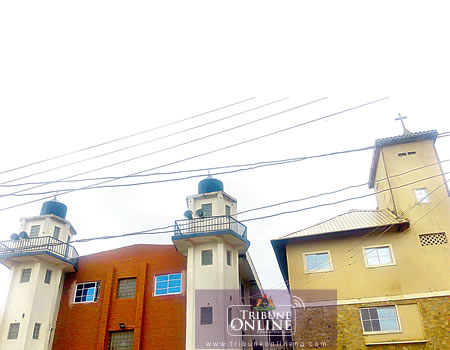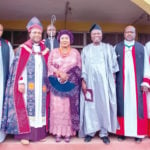PLATEAU State especially its capital had experienced quite a lot of upheavals, mostly ethno-religious crises over a period of time, leading to wanton destruction of lives and properties. Places of worships were readily the targets during the days of rage, during which quite a number of places of worships were either burnt down or vandalised.
As a result of this, the state capital has for long been polarised along religious lines. Most of the churches in the Muslim-dominated areas have since closed shop likewise mosques in the Christian-dominated areas.
However, due to the prevailing peace in the state especially within the state capital, there have been moves by some Non Governmental Organisations to break this barrier to inter-faith cooperation and coexistence and promote harmonious relationship among the adherents of the two major religions.
Sunday Tribune learnt that religion leaders on both sides of the divide are currently working assiduously to encourage those whose places of worship were burnt to return and rebuild such structures, but many of them are skeptical about such a move for fear of being attacked again or going back to square one should another crisis arise in future.
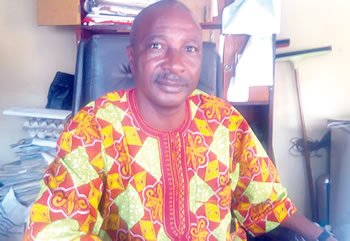
At a point the level of intolerance was so high that people restricted their movements to just the areas where people of their faith reside. However, in the midst of the anxiety, fear and trepidation in the tin city, is a place called Adebayo Street, adjacent to the city centre popularly known as Terminus where Muslims and Christians worship on the same land. As if to demonstrate the unity expected among adherents of both faiths the two places of worship share the same fence and have been there for more than a century.
The church, First Baptist Church and Nurudeen Society of Nigeria have been staying side by side since 1911 without any problem, The two have always been the cynosure of all eyes and subject of discourse for ages. Those who are not familiar with the story of the two places of worship have been wondering and wanted to know the basis of the peaceful co-existence between the adherents of the two religious in spite of the constant crises ravaging Jos over time.
From all indications, both the mosque and the church had survived many religious uprising without raising arms against each other. Sunday Tribune findings revealed that most of the churches within the vicinity of Adebayo Street had at one time or the other being torched during religious crisis. In spite of this, both First Baptist church and Nurudeen Society of Nigeria had remained standing still date bearing no scar of any past crisis.
On probing further into the spirit behind the cordiality, Sunday Tribune learnt that the two religious organisations were established by two brothers who migrated from Ogbomosho to Jos in 1911. The two of them were traders and settled on Adebayo Street; it was gathered that the two of them who were both Christian and Muslim respectively approached a wealthy Yoruba man called Adebayo who was a retired railway worker for a piece of land to build a church and mosque which they later christened First Baptist Church and Nurudeen Society of Nigeria.
Speaking to Sunday Tribune, the present leaders of the two places of worship who spoke extensively on the bond of unity between the church and the mosque said in spite of the prevailing security situation in Jos, especially within vicinity of the church, the two maintain the spirit of brotherliness and peace inherited from their founders.
The serving chairman of Nurudeen Society of Nigeria, Jos chapter, Alhaji Zakariya Abdulaziz Ojo and Reverend Sunday Abolade Fabunmi of the First Baptist Church who spoke through the church Business Manager, Brother Isaac Olusegun Adewuyi corroborated each other when narrating the sequence of history that led to the establishment of the two places of worship.
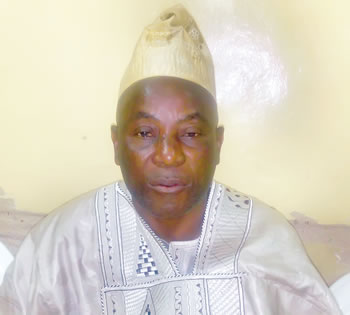
Alhaji Ojo said the two brothers who founded the church and the mosque were of Ogbomoso, Oyo State extractions, adding that both of them who were traders came to Jos in 1911.
Despite their religious differences they did business together, lived in the same house, ate together and followed their religious persuations without any molestation.
According to him, in their quest for places of worship, the two approached a wealthy Yoruba man named Adebayo who hailed from Abeokuta, Ogun State for a piece of land, a request which he obliged for which they did not pay a dime. He added that the spirit of brotherhood which was in the founding fathers is still sustaining the two bodies till date.
“Forget about the religious differences, we still doing many things in common till date. We have refused to allow anybody to come between us, though once in a while we do have challenges but we have elders on both sides who will never allow it to fester,” Alhaji Ojo said.
Brother Adewuyi in his interaction with Sunday Tribune said both the church and the mosque still allow the spirit of love between the founders to drive their relationships adding that despite some problems arising from time to time, both sides still try to understand one another.
“To sustain this relationship and live in peace with one another, we have elders committee on both sides who meet regularly whenever the need arises. A typical example was during 2001 crisis in Jos when some hoodlums used the mosque to throw fire into the church. This affected the relationship but with the intervention of our elders and the Soun of Ogbomoso, the matter was amicably resolved.
“The reason we haven’t experienced a major crisis is because we understood one another; our youths are upright, they understand one another and are willing to continue with the prevailing unity as inherited by our parents,” Adewuyi said.
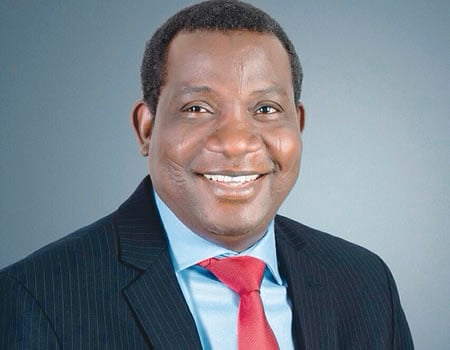
Speaking on the example set by the two groups, Alhaji Ojo said there are quite a lot of people who cherish the close relationship noting that this, more than anything else, has continued to lure other people who are not Yoruba to the mosque.
“In this Mosque we have people who are not Yoruba; we have Hausa, Berom, Fulani and others. We preach peace and the need to live in unity with one another,” he said.
On the effect of the use of horn speakers on both sides, Alhaji Ojo said: “we have harmonised our services; we don’t disturb each other. We are tolerant; we share the same access road without any friction.”
A Hausa man Danjuma Ibrahim who sell wares adjacent to the places of worship told Sunday Tribune that quite a lot of people have been wondering how the church and the mosque have been coping and tolerating one another over the years. He advised people, especially Christians and Muslims to be more tolerant in dealing with one another.
“If we are tolerant and could accommodate each other there would be no friction or crisis,” Ibrahim advised.
Brother Adewuyi who commended the state government for the prevailing peace in the state capital implored residents to sustain the prevailing peace and be more tolerant in dealing with one another.
If there must be ambassadors of religious tolerance in the country these places of worship in Jos best fit the part. Existing side by side for more than a hundred years is certainly a good yardstick to win the award of the most tolerant places of worship in the country, nay the whole world.
WATCH TOP VIDEOS FROM NIGERIAN TRIBUNE TV
- Let’s Talk About SELF-AWARENESS
- Is Your Confidence Mistaken for Pride? Let’s talk about it
- Is Etiquette About Perfection…Or Just Not Being Rude?
- Top Psychologist Reveal 3 Signs You’re Struggling With Imposter Syndrome
- Do You Pick Up Work-Related Calls at Midnight or Never? Let’s Talk About Boundaries

